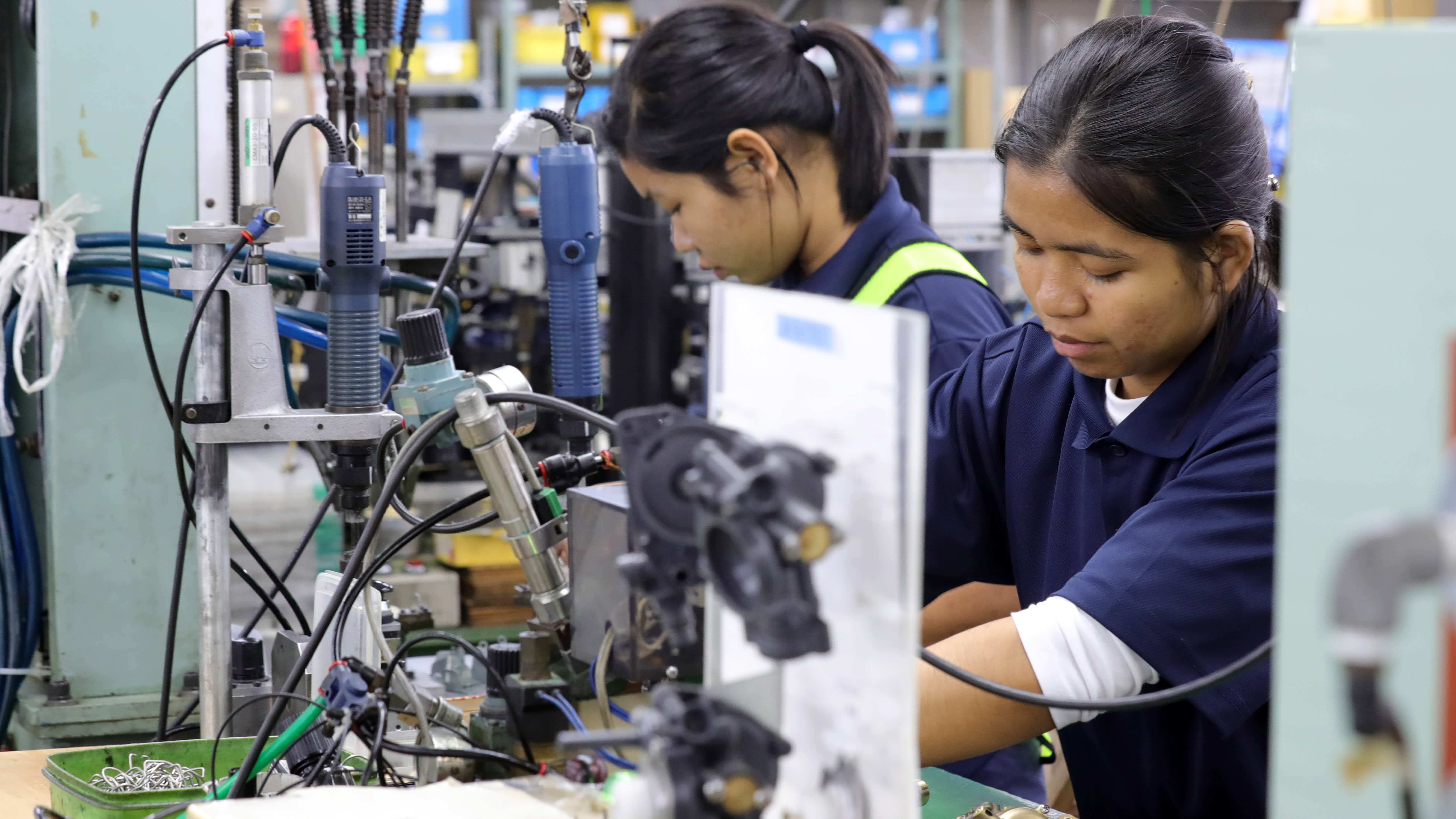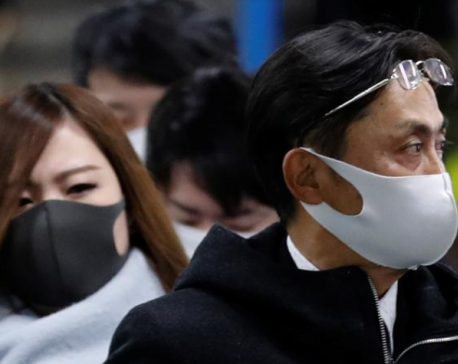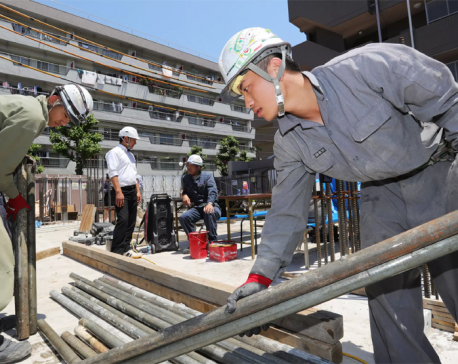
OR
Japan approves 126 measures to attract more foreign workers
Published On: December 25, 2018 04:00 PM NPT By: Agencies

TOKYO, Dec 25: Japan's government on Tuesday adopted a slew of measures to encourage foreign nationals to work in the country and to smooth their integration into society.
Prime Minister Shinzo Abe urged his ministers to do their best to ensure foreign workers are motivated to come -- and not only to big cities but also smaller communities. His call comes ahead of a law change designed to bring hundreds of thousands into short-handed sectors.
The ministers adopted 126 measures in total, including steps to promote coexistence among local Japanese and newcomers and assistance for foreign nationals already residing in Japan. To achieve all this, the government posted a supplementary budget of 6.1 billion yen ($55.3 million) for fiscal 2018 and a budget of 16.3 billion yen for fiscal 2019.
In April, a revision of the immigration control and refugee recognition act is to pave the way for accepting about 340,000 foreign workers in targeted industries over five years.
Under the plans adopted on Tuesday, one-stop facilities, tentatively named Centers for Multicultural Information and Assistance, will be established at about 100 locations nationwide. These centers will provide consultations on administrative procedures and everyday life in 11 languages -- Japanese, English, Chinese, Korean, Spanish, Vietnamese, Thai, Portuguese, Indonesian, Nepalese and Tagalog -- using translation apps and other means.
The government will also seek to ensure all regions have Japanese-language schools, and new qualifications will be given to Japanese-language teachers.
Other measures will include providing information in multiple languages to make it easier for non-Japanese families with small children to use medical institutions and child care facilities.
To dispel concerns within the ruling Liberal Democratic Party about a possible concentration of foreign workers in high-paying urban areas, the government plans to put together a clear picture of working conditions by sector, occupation, resident status and region. The government will also use regional revitalization subsidies to provide financial support to municipalities that do their utmost to accept foreign workers.
Another key move is to increase safeguards against malicious brokers and employers that prey on foreign workers, including through cooperation with governments in workers' home countries. For this, Tokyo plans to sign bilateral deals with the governments of nine countries where it plans to conduct Japanese language examinations for locals wishing to obtain a new category of visa. Vietnam, the Philippines and Myanmar are on the list.
Steps will also be taken to prevent exploitation of non-Japanese workers under the technical intern system, which is based on an existing visa status, as the government expects technical interns to shift to new visa statuses.
The new "category 1 specified skills" visa covers 14 job types, including nursing care, restaurants and construction.
The government estimates up to 60,000 people will use the new visa to find nursing care jobs in Japan in the first five years, making it the biggest job category in terms of the number of foreign workers. Restaurant work is likely to be next, with 53,000 foreign workers expected to be employed over the same period.
The government anticipates a total of 345,150 foreign nationals will find jobs using the visa status.
Initially, in April, the government plans to start conducting skills examinations for applicants in the nursing care, lodging and restaurant industries. Exams for the remaining 11 job types will start by the end of March 2020.
To prevent the new visa status from affecting the employment of Japanese nationals, issuances are to stop once worker shortages are resolved. The program assumes direct employment, although it makes exceptions for temporary hiring in farming and fishing.
And to avoid a heavy concentration of foreign workers in big cities, the program specifies that the government will "take necessary measures" for these workers not "to excessively concentrate in limited regions, including large urban areas."
The government plans to ask businesses and local governments to prepare for the April introduction of the law.
You May Like This

Japan government says no truth to report of possible Olympics cancellation
TOKYO, Jan 22: There is no truth to a report about the possible cancellation of the Tokyo Olympics, Japan’s Deputy... Read More...

Japan declares state of emergency for Tokyo area as COVID-19 cases surge
TOKYO, Jan 7: Japan declared a limited state of emergency in the capital, Tokyo, and three neighbouring prefectures on Thursday... Read More...

Japan's new language test designed to ease labor immigration
Business-oriented exam to be offered first in Southeast Asia ... Read More...





Just In
- NRB introduces cautiously flexible measures to address ongoing slowdown in various economic sectors
- Forced Covid-19 cremations: is it too late for redemption?
- NRB to provide collateral-free loans to foreign employment seekers
- NEB to publish Grade 12 results next week
- Body handover begins; Relatives remain dissatisfied with insurance, compensation amount
- NC defers its plan to join Koshi govt
- NRB to review microfinance loan interest rate
- 134 dead in floods and landslides since onset of monsoon this year












Leave A Comment